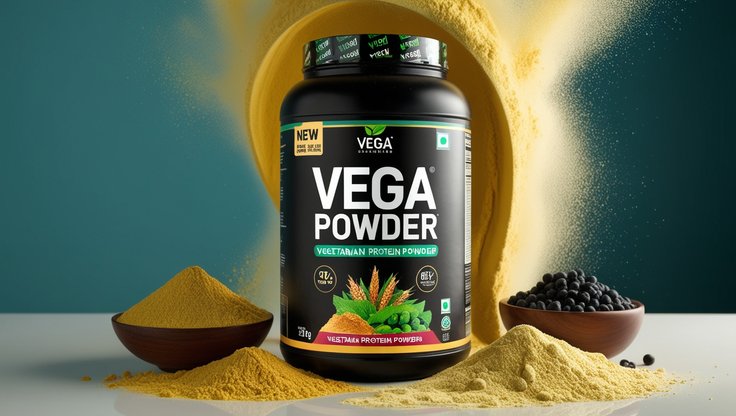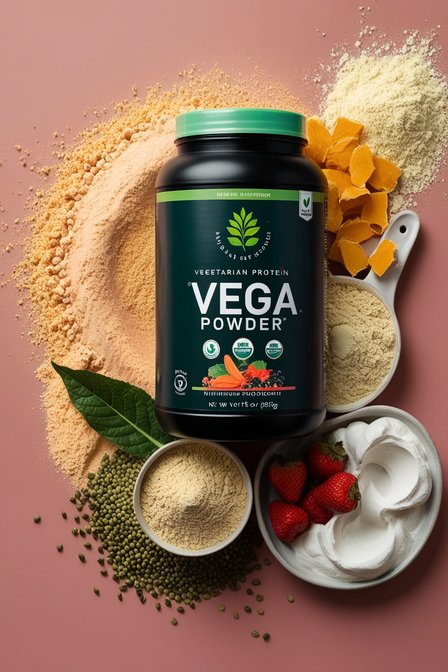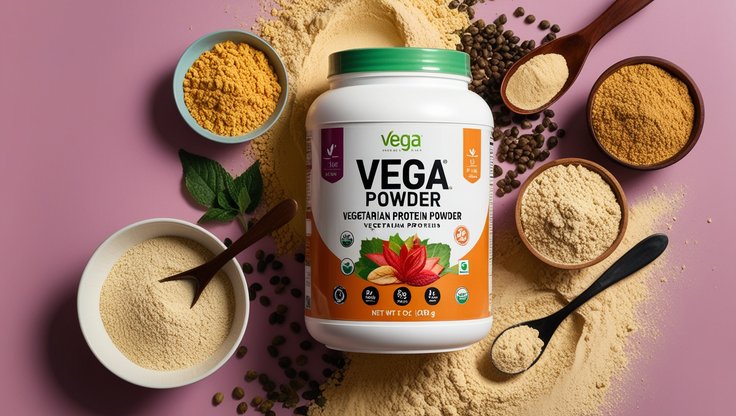Best Plant-Based Protein Sources
In recent years, plant-based diets have gained significant popularity for their numerous health benefits and positive impact on the environment. A crucial aspect of any diet is ensuring adequate protein intake, which is essential for muscle repair, immune function, and overall health. While animal products are traditionally known for their high protein content, there are many plant-based sources that can provide the necessary protein without compromising on taste or nutritional value.
The Importance of Protein
Protein is a macronutrient composed of amino acids, which are the building blocks of our bodies. It plays a vital role in various bodily functions, including the growth and repair of tissues, production of enzymes and hormones, and maintenance of a healthy immune system. For those following a plant-based diet, understanding the best sources of protein is crucial to meeting their nutritional needs.
Legumes: The Protein Powerhouses
Legumes, including beans, lentils, chickpeas, and peas, are among the best plant-based protein sources. They are not only rich in protein but also high in fiber, vitamins, and minerals. For example, one cup of cooked lentils provides about 18 grams of protein, making them an excellent addition to any meal. Chickpeas, commonly used to make hummus, offer around 15 grams of protein per cup.
Quinoa: The Complete Protein
Quinoa is a unique plant-based protein source because it contains all nine essential amino acids, making it a complete protein. This ancient grain is also rich in fiber, magnesium, and iron. A cup of cooked quinoa provides approximately 8 grams of protein, making it a versatile ingredient for salads, bowls, and even breakfast dishes.
Nuts and Seeds: Compact Nutritional Powerhouses
Nuts and seeds are not only high in protein but also packed with healthy fats, fiber, and essential nutrients. Almonds, for example, contain about 6 grams of protein per ounce, while chia seeds provide 5 grams per ounce. Incorporating a variety of nuts and seeds, such as walnuts, sunflower seeds, and hemp seeds, can enhance the protein content of meals and snacks.
Tofu and Tempeh: Versatile Soy Products
Soy products like tofu and tempeh are staples in many plant-based diets due to their high protein content and versatility. Tofu, made from condensed soy milk, offers around 10 grams of protein per half-cup serving. Tempeh, a fermented soybean product, contains even more protein, with about 15 grams per half-cup. Both can be used in a variety of dishes, from stir-fries to sandwiches, and can absorb flavors well, making them a favorite among plant-based eaters.
Seitan: The Wheat-Based Protein
Seitan, also known as wheat gluten, is a highly concentrated protein source made from wheat. It boasts an impressive 25 grams of protein per 3.5-ounce serving, making it one of the highest plant-based protein options available. Seitan’s meat-like texture makes it an excellent substitute for meat in many dishes, including stews, sandwiches, and barbecues.
Edamame: Young Soybeans
Edamame, or young soybeans, are not only delicious but also rich in protein. A cup of cooked edamame provides about 17 grams of protein. They are also high in fiber, vitamins, and minerals, making them a nutritious snack or addition to salads and stir-fries.
Nutritional Yeast: The Cheese Substitute
Nutritional yeast is a deactivated yeast that is often used as a cheese substitute in vegan cooking. It has a nutty, cheesy flavor and is packed with protein, offering around 8 grams per two tablespoons. Additionally, it is fortified with B vitamins, including B12, which is essential for those on a plant-based diet.
Spirulina: The Superfood Algae
Spirulina is a blue-green algae that is considered a superfood due to its high protein content and array of nutrients. One tablespoon of spirulina powder provides about 4 grams of protein and is rich in vitamins, minerals, and antioxidants. It can be added to smoothies, juices, or energy bars for an extra protein boost.
Protein-Rich Vegetables
While vegetables are not typically known for their high protein content, certain varieties do offer a significant amount of this essential nutrient. For instance, spinach, broccoli, and Brussels sprouts contain between 3-4 grams of protein per cup when cooked. Incorporating these vegetables into meals can contribute to the overall protein intake.
The Benefits of Plant-Based Protein
Plant-based proteins offer numerous benefits beyond just providing essential amino acids. They are typically lower in saturated fats and cholesterol compared to animal proteins, making them heart-healthy choices. Additionally, plant-based diets are often rich in fiber, which supports digestive health and helps maintain a healthy weight.
Environmental Impact
Choosing plant-based protein sources also has a positive impact on the environment. Producing plant-based foods generally requires fewer resources, such as water and land, and generates lower greenhouse gas emissions compared to animal agriculture. By incorporating more plant-based proteins into their diet, individuals can contribute to a more sustainable and eco-friendly food system.
Meeting Protein Needs on a Plant-Based Diet
To ensure adequate protein intake on a plant-based diet, it is essential to incorporate a variety of protein sources. Combining different types of legumes, grains, nuts, seeds, and vegetables can help achieve a balanced amino acid profile. For those concerned about meeting their protein needs, consulting with a registered dietitian can provide personalized guidance and support.
Overcoming Common Challenges
Transitioning to a plant-based diet may present some challenges, particularly in terms of protein intake. One common concern is the perceived difficulty of consuming enough protein without relying on animal products. However, with careful planning and a diverse diet, it is entirely possible to meet protein needs through plant-based sources. Experimenting with different recipes and cooking methods can also make the transition smoother and more enjoyable.
The Role of Supplements
In some cases, individuals may choose to supplement their diet with plant-based protein powders. These supplements can be convenient for those with higher protein requirements, such as athletes or individuals with specific health conditions. Plant-based protein powders, such as pea, hemp, and brown rice protein, can be added to smoothies, oatmeal, or baked goods to enhance their protein content.
The Future of Plant-Based Proteins
The plant-based protein market is rapidly growing, with new and innovative products constantly emerging. From meat substitutes made from pea protein to dairy-free yogurt and cheese, there are now more options than ever for those seeking to reduce their animal product consumption. As awareness of the health and environmental benefits of plant-based diets continues to rise, the demand for plant-based proteins is expected to increase, leading to even more advancements in this field.
Conclusion
Incorporating plant-based protein sources into your diet is a nutritious, sustainable, and delicious way to meet your protein needs. With a wide variety of options available, from legumes and grains to nuts, seeds, and soy products, it is easier than ever to enjoy a balanced and protein-rich plant-based diet. Embracing these protein sources not only supports your health but also contributes to a more sustainable and environmentally-friendly food system. As the popularity of plant-based diets continues to grow, so too will the accessibility and variety of plant-based protein options, making it an exciting time to explore and enjoy the benefits of plant-based eating.


